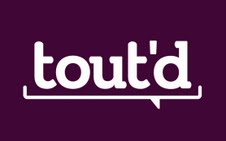 A Q&A with Teamly co-founder and CEO Scott Allison. The San Francisco and London–based company was founded in 2011 and was part of 500 Startups’ Summer accelerator class. They’re now in the process of raising a Seed funding round.
A Q&A with Teamly co-founder and CEO Scott Allison. The San Francisco and London–based company was founded in 2011 and was part of 500 Startups’ Summer accelerator class. They’re now in the process of raising a Seed funding round.
SUB: Please describe Teamly, and the value proposition you offer to the enterprise.
Allison: Teamly helps companies around the world get rid of pointless performance reviews. Everybody hates annual reviews—they are a huge waste of time. But more than that, management is something that needs to happen all-year round, not once a year. Teamly is a SaaS tool to assist managers with managing the performance of employees better, all-year round. It does this by asking employees to record their key objectives, and then automates the reporting of those for management. Users record their top priorities for the day, week, month and quarter and can track their performance, as well as share their accomplishments with their colleagues. We save managers and employees time on emails, meetings, status updates, and reporting, and we help aide better collaboration as people are more in tune with what their co-workers are working on.
SUB: Who are your target users?
Allison: Right now we’re focused on SMBs, but already we have users inside of much larger companies. We think of both managers and ordinary employees as equally important, so we build Teamly with both types of people in mind.
SUB: Who do you consider to be your competition?
Allison: The traditional enterprise world of HR software is dominated by SuccessFactors and Oracle. We are taking those guys on with our freemium product. Anyone can register and start using it to plan their work. It’s not a traditional top-down tool.
SUB: What differentiates Teamly from the competition?
Allison: Teamly is a real-time agile solution to help managers manage teams all year round. And it helps employees get their work done every day—it’s not just some occasionally used HR tool, it’s a useful and practical tool.
SUB: When was the company founded and what were the first steps you took in establishing it?
Allison: We initially launched a prototype in 2010, which did ok, but it wasn’t till late 2011 when I moved from the UK to Silicon Valley, raised some money and built a new team that it began to take off properly. We then entered the 500 Startups Summer 2012 accelerator, which we’ve just completed. It’s been an amazing experience and it’s really helped us.
SUB: What was the inspiration behind the idea for Teamly? Was there an ‘aha’ moment, or was the idea more gradual in developing?
Allison: The ‘aha’ moment came when I was reflecting on some of the challenges and successes when growing my last business, an award-winning telecoms business called abica. I wanted a way to manage our team more effectively, and make sure that people were really thinking about what they’re working on, instead of just being busy. I found that traditional performance management software was overly complex and too infrequently used to be of any real value.
SUB: What have the most significant obstacles been so far to building the company?
Allison: Unfortunately my original co-founder left after getting sick. That was shortly after we launched a prototype. As I don’t code it meant the product was stagnant for a long time. Happily that’s in the past, and we’re really moving quickly now.
SUB: According to reports, you’re in the process of completing a $500K initial funding round. Why was this a good time to raise this round, and how do you plan to use the new funds?
Allison: We timed the Seed raise with the end of the 500 Startups accelerator, and as I write this we’ve already pitched at demo days to investors in Silicon Valley and San Francisco, and we finish up with a demo day in New York City. During our time at 500 Startups we’ve made many improvements to the product, and we’ve tripled our active users. With that traction the timing couldn’t be better to raise money.
SUB: How does the company generate revenue or plan to generate revenue?
Allison: We already generate revenues from recurring monthly subscriptions. We’re using a freemium strategy, and offer a premium plan with more reporting and other enhancements designed for companies to get more from Teamly.
SUB: What are your goals for Teamly over the next year or so?
Allison: We have a lot we want to do. Expand our team, so we can build faster, in particular, integrating with more tools. We will be increasing users and revenues and helping more and more companies around the world improve their performance and build better performing teams.
Teamly – www.teamly.com












